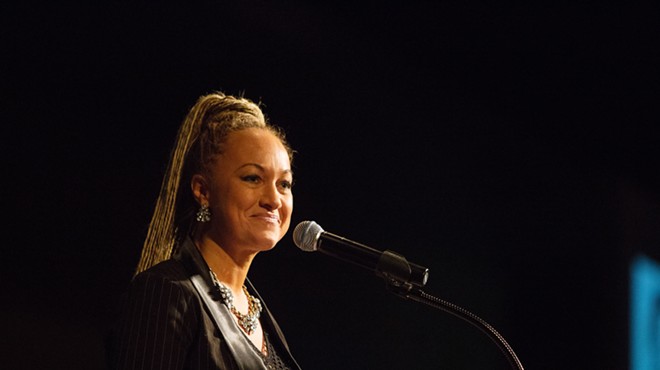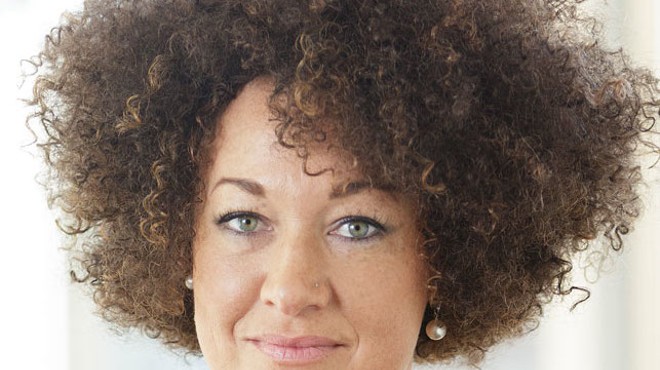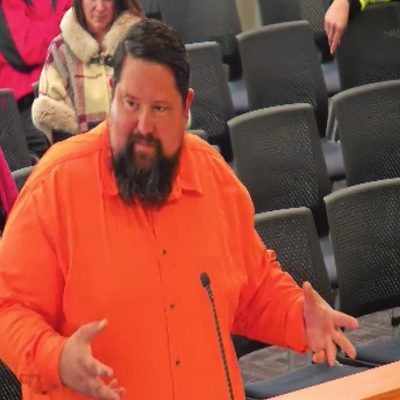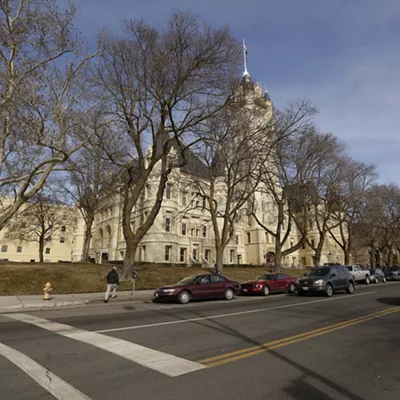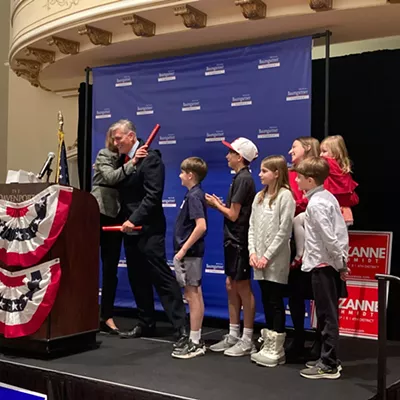Monday, February 27, 2017
A private investigator didn't reveal Rachel Dolezal's lies—the Coeur d'Alene Press did
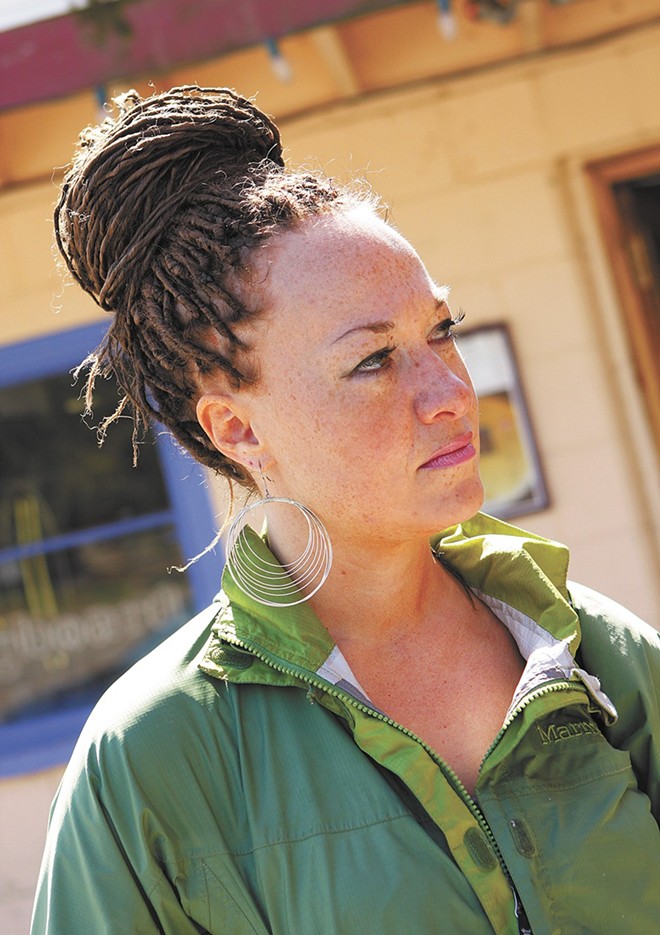
Young Kwak photo
Rachel Dolezal has continued to make international news, with the upcoming release of her new memoir.
This weekend, the Spokesman-Review had a quick takedown of another outlandish claim in the latest international profile of former NAACP President Rachel Dolezal: that Dolezal's lies about her race were revealed because former Police Chief Frank Straub, wanting to sabotage her work on the police ombudsman commission, hired a private investigator who uncovered Dolezal's subterfuge.
But while it busts one myth, the Spokesman-Review article perpetuates another: That it was private investigator Ted Pulver that played the crucial role in revealing that Dolezal was pretending to be black this entire time: "The private investigator who discovered information that led to former NAACP Spokane chapter leader Rachel Dolezal’s family identifying her as white has denied he was hired by then-police Chief Frank Straub."
In fact, the credit goes to the Couer
"Rachel Dolezal was a case that, when I started working on it, there were other people working on it as well," says Pulver. Pulver says he did tip off the Spokesman-Review and KXLY that he was working on the case. But when he contacted reporter Jeff Selle at the Coeur d'Alene Press, Selle was already working on the story.
"He was
Selle and his fellow Press reporter Maureen Dolan say that it was her spate of hate-crime allegations that inspired them to start investigating.
(The Inlander started investigating for the same reason, but the Coeur d'Alene Press got to the truth first.)
Pulver says he and Selle compared notes on their separate investigations.
"We had the back and forth. We both had a little bit of something," Pulver says. "We both were very interested in pursuing it. He did his thing, and I did my thing."
Selle, in a comment on Facebook, confirms that he spoke with Pulver, but says that the only thing that Pulver had that he didn't was an interview with her ex-husband — an interview the Press ultimately didn't end up using.
"I didn't have to convince Rachel's parents to talk to Jeff Selle," Pulver says.
After the Press story broke, KXLY's famous interview with Dolezal helped the story go viral, but even there, the Press provided an assist.
"I am the one who provided KXLY with the photo of her so-called African-American father and her birth certificate that her mother sent me," Selle writes. KXLY was more than generous enough to credit the Press with the scoop.
(Pulver wouldn't say exactly who his clients were — only that there were more than one of them, some of them were "very, very affluent," from out of state, and that absolutely none of them were associated with law enforcement.)
So why does all this matter? Because the Dolezal revelation isn't a story about mysterious forces successfully using a P.I. to take down a troublesome racial justice activist. Nor is it the story of an embittered family spontaneously deciding to call up a local newspaper to out their actually-white daughter.
Instead, it's the story about two reporters at a small-town publication picking up the phone and doing the legwork to find the truth.
"This 'private-investigator conspiracy' is just ridiculous," Selle writes. "I was the one who contacted Rachel's parents."
Tags: Rachel Dolezal , News , Image









